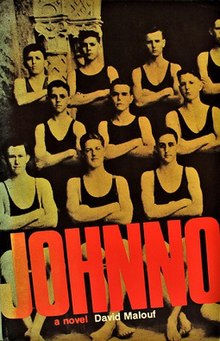
David George Joseph Malouf is an Australian poet, novelist, short story writer, playwright and librettist. Elected a Fellow of the Royal Society of Literature in 2008, Malouf has lectured at both the University of Queensland and the University of Sydney. He also delivered the 1998 Boyer Lectures.
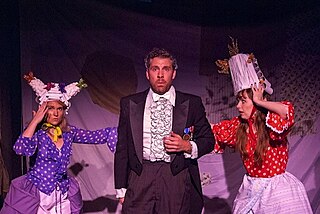
Così is a play by Australian playwright Louis Nowra which was first performed in 1992 at the Belvoir St Theatre in Sydney, Australia. Set in a Melbourne mental hospital in 1971, Così is semi-autobiographical, and is the sequel to his previous semi-autobiographical play, Summer of the Aliens.
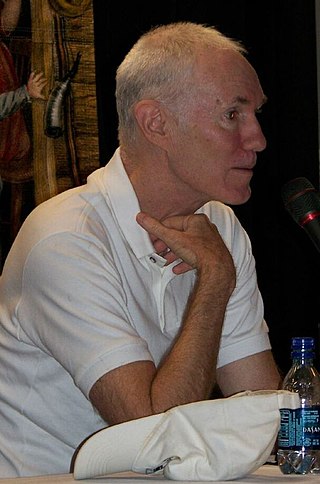
Andrew Holleran is the pseudonym of Eric Garber, an American novelist, essayist, and short story writer, born on the island of Aruba. Most of his adult life has been spent in New York City, Washington, D.C., and a small town in Florida. He was a member of The Violet Quill with Christopher Cox, a gay writer's group that met in 1980 and 1981 and also included Robert Ferro, Edmund White and Felice Picano. Following the critical and financial success of his first novel Dancer from the Dance in 1978, he became a prominent author of post-Stonewall gay literature. Historically protective of his privacy, the author continues to use the pseudonym Andrew Holleran as a writer and public speaker.
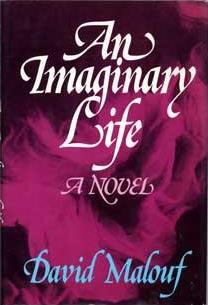
An Imaginary Life is a 1978 novella written by David Malouf.

Voss (1957) is the fifth published novel by Patrick White. It is based upon the life of the 19th-century Prussian explorer and naturalist Ludwig Leichhardt, who disappeared while on an expedition into the Australian outback.

The Mayne Inheritance is a non-fiction novel written by Queensland author Rosamond Siemon. It was first published in 1997 by University of Queensland Press, and a new edition with updated information was issued by the same publisher in 2003. The book won the Brisbane City Council's One Book One Brisbane competition in 2003.
Nicholas Francis Ward Earls is a novelist from Brisbane, Australia, who writes humorous popular fiction about everyday life. The majority of his novels are set in his home town of Brisbane. He fronted a major Brisbane tourism campaign.

James "Jim" Moloney is an Australian children's author. A prolific writer whose books span an age range from seven- to seventeen-year-olds, he is best known for his young adult novels. He has been nominated and won awards for his books in the Children's Book Council of Australia Awards. His books have been translated into French, Korean, Lithuanian and Flemish/Dutch.
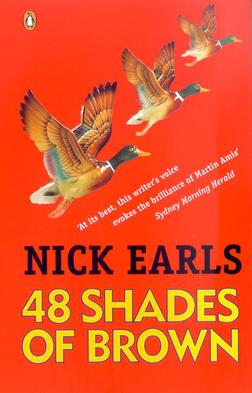
48 Shades of Brown is a young-adult novel by Australian author Nick Earls, published by Penguin Books in 1999. The novel was awarded Children's Book of the Year: Older Readers by the Children's Book Council of Australia in 2000. The novel has been adapted into a play and a film.
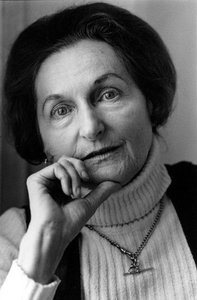
Jessica Margaret Anderson was an Australian novelist and short story writer. Born in Gayndah, Anderson lived the bulk of her life in Sydney apart from a few years in London. She began her career writing short stories for newspapers and drama scripts for radio, especially adaptations of well-known novels. Embarking on her career as a novelist relatively late in life - her first novel was published when she was 47 - her early novels attracted little attention. She rose to prominence upon the publication of her fourth novel, Tirra Lirra by the River, published in 1978. Although she remains best known for this work, several of her novels have garnered high acclaim, most notably The Impersonators (1980) and Stories from the Warm Zone and Sydney Stories (1987), both of which have won awards. She won the Miles Franklin Literary Award twice, and has been published in Britain and the United States. Jessica Anderson died at Elizabeth Bay, New South Wales in 2010, following a stroke. She was the mother of Australian screenwriter Laura Jones, her only child.

My Brother Jack is a classic 1964 Australian novel by writer George Johnston. It is part of a trilogy centering on the character of David Meredith. The other books in the trilogy are Clean Straw for Nothing and A Cartload of Clay. It is commonly studied for English literature subjects in Australia.
Andrew McGahan was an Australian novelist. His first novel Praise is considered to be part of the Australian literary genre of grunge lit. His novel The White Earth won the 2005 Miles Franklin Award.

Paul Denny is an Australian stage, television, and film actor.

The White Earth is a 2004 novel by Australian author Andrew McGahan. The book won the 2005 Miles Franklin Award.
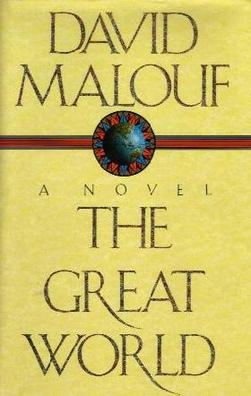
The Great World is a 1990 Miles Franklin literary award-winning novel by the Australian author David Malouf.
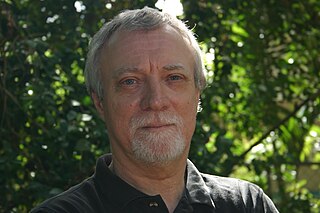
Philip Max Neilsen is an Australian poet, fiction writer and editor. He teaches poetry at the University of Queensland and was previously professor of creative writing at the Queensland University of Technology.

Last Drinks is a 2000 Ned Kelly Award-winning novel by the Australian author Andrew McGahan.
La Boite Theatre, founded as the Brisbane Repertory Theatre Society, is an Australian theatre company based in Brisbane, Queensland. La Boite was established in 1925 and is Australia’s longest continuously running theatre company.

Anna McGahan is an Australian actress and playwright. She is best known for playing the roles of Nellie Cameron on the television series, Underbelly: Razor (2011), Lucy in House Husbands (2012–2014), and Rose Anderson in The Doctor Blake Mysteries (2015–2018).
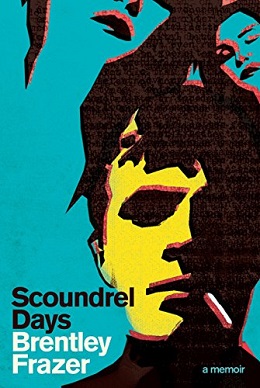
Scoundrel Days is a memoir by Australian contemporary poet Brentley Frazer. Described as "a gritty, Gen X memoir, recounting wild escapades into an under-culture of drugs and violence and sex by ABC Radio National and by the publisher as "Tom Sawyer on acid, a 21st-century On the Road, a Holden Caulfield for punks", literary critic Rohan Wilson compared Frazer's ability to shock, surprise and unsettle with that of Marcel Duchamp, concluding: "Frazer is writing here in the tradition of Helen Garner, Andrew McGahan and Nick Earls.This is dirty realism at its dirtiest."
